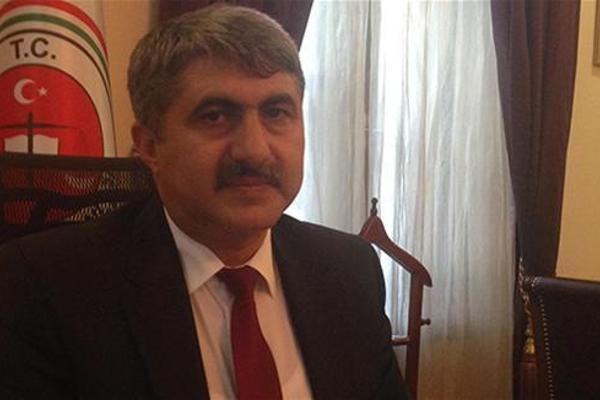Members of State of Emergency Commission named
ANKARA


The Justice Ministry’s deputy undersecretary, Salahaddin Menteş, was named as the head of the commission, while Court of Cassation Deputy Secretary General Mehmet Karagöz, Supreme Court Judge Murat Aytaç, Deputy Chief Inspector Hasan Şıldak, Justice Ministry Probation Department head Esat Işık, Education Ministry Appointments Department head Mustafa İkbal and State Supervisory Board (DDK) member Salih Tanrıkulu were named as the other members.
Following the announcement, Prime Minister Binali Yıldırım received Menteş and the commission members at his office at the ruling Justice and Development Party (AKP) headquarters on late May 16.
The commission was established on Jan. 23 with a decree law in order to receive objections to the state of emergency rulings, which are mostly related to the dismissal of public officials, the closure of institutions and organizations and imprisonments.
The formation of the commission was seen as a bid to reduce the amount of criticism from European institutions, as decrees issued under the state of emergency rules are closed to appeal and thus closed to any domestic legal remedies. The Constitutional Court has also ruled that decrees issued by the government during the state of emergency rule are outside its remit, ruling out the possibility of any related individual applications.
The right to individually apply to the high court was originally granted in order to ease the high amount of application to the European Court of Human Rights (ECHR).
“Objections will no longer be filed only to the institution but to this center, which will act as a court and will be settled here,” Yıldırım said May 16.
The commission will receive applications about removals or dismissals from public service and education institutions, as well as the closure of associations, foundations, trade unions, federations, confederations, private health institutions, private education institutions, higher education institutions and foundations, private radio and television organizations, newspapers and magazines, news agencies, publishing houses and distribution channels.
Those who have been removed from public service, from professions or organizations, as well as those who have been suspended, may also apply to the institution where they last worked.
The commission’s term will be two years, and members are expected to issue around 200,000 decisions about the decrees during their term. However, the Council of Ministers can extend the term for one year.
The commission is entitled to demand any information and documents from public institutions and judicial authorities except documents subject to confidentiality as part of an investigation or others classified as state secrets. Public institutions and judicial authorities are obliged to provide the demanded information to the commission within the scope of its duties immediately and to facilitate any inquiries.
